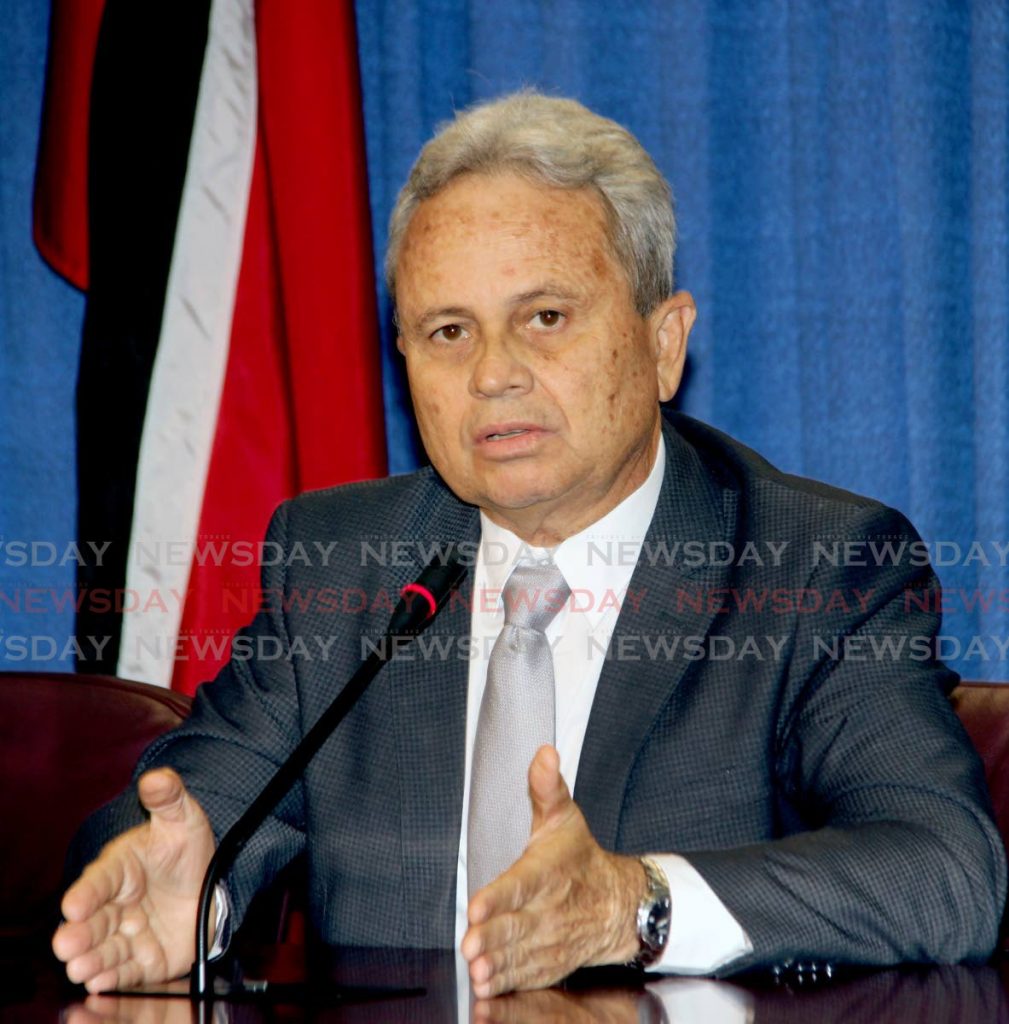Imbert: HSF for a rainy day, covid19 a 'tsunami'

FINANCE Minister Colm Imbert said the early withdrawal from the Heritage and Stabilisation Fund (HSF) will keep people alive as TT was facing a "tsunami" with covid19.
"We can't wait a year. The amount of people that will die during that year that we wait. We can't wait until next year to draw from this fund. And anybody who says different is not a serious person. They're a joker."
He was piloting The Miscellaneous Provisions (Heritage and Stabilisation Fund, Government Savings Bonds and Value Added Tax) Bill in the House of Representatives on Wednesday.
He said the purpose of the HSF was to save and invest surplus petroleum revenues to cushion the impact on sustained public expenditure during periods of revenue downturn whether caused by a fall in the price of crude oil or natural gas. He explained when there is a precipitous drop in the price of oil and gas Government could either reduce expenditure, which would result in sending thousands of people home, reductions in WASA subsidies, the removal of social support like the food card and disability grant, and no payments to suppliers, or "do what we plan to do to keep people in jobs, to keep people alive, which is to access the HSF".
Imbert said when the HSF was envisaged Government had $10 billion in credit at the Central Bank and was therefore designed for Government to withdraw at the end of the year. He added, however, that in 2012 it went from positive to negative and when the new administration came in 2015 it was at maximum minus $9 billion.
"So we find ourselves in a situation now with a catastrophic situation facing and we now have to change the way we withdraw from this fund."
The proposed changes would allow withdrawals if one of three emergency situations occur: a disaster area is declared; a dangerous infectious disease is declared; or there is or likely to be a precipitous decline in budgeted revenue based on the budgeted price of crude oil or natural gas.
He said the country has already met two of these conditions – the precipitous drop in crude oil and natural gas prices by 50 per cent and a global pandemic.
"So in these circumstances we feel any government, if faced with this in the future and now, must have access to our savings account. Because the HSF is really just a savings account. It's for a rainy day. And we are in a thunderstorm right now. In fact we are in a hurricane, a deluge, a tsunami that will drown us unless we deal with this."
Imbert said the method for withdrawals would be changed so that if any one of the conditions occurred a withdrawal can be made up to a maximum of US $1.5 billion, and for transparency the minister will lay a report in the House within 60 days of the withdrawal.
At a media conference earlier this month Imbert reported the HSF stood at US $6.5 billion. At the House Wednesday he said the HSF has lost some money in the last few weeks as "the markets have gone crazy".
"It's like the Depression of 1929 in the US."
He said after losing approximately US $500 million over the last three weeks because of the calamitous drop of equities in US the fund made US $150 million Tuesday.
Imbert said it was not known what would happen to this economy and noted the covid19 impact on China, one of the biggest consumers of hydrocarbons, and India, which has a large body of consumers, has locked down.
"So we have no idea, we are in uncharted territory, this is all brand new. This a strange new world. In fact some people say it is like a World War III in a different way."
He said the original plan for interest-bearing bonds for people with VAT arrears was to increase the limit in the Savings Bonds Act to $3 billion for the same amount in bonds, but it was decided to plug any loopholes and avoid any legal challenge from any "mischief maker" seeking to undermine Government's "rescue mission," the VAT Act would be amended.
Imbert said before the crisis it was worked out that if tax-free bonds were issued at three per cent over three years the banks would be able to convert the bonds at 100 cents on the dollar.
"The banks are eagerly awaiting to receive these bonds that they will cash in for businesses who need cash right away."
He said the $3 billion in bonds will be addition to $277 million being paid to 9,364 companies (or 92 per cent of the total group of 10,160) that are owed less than $250,000 by the end of next week.
Before piloting the bill he said he wished to practice social distancing and, since some members had come in contact with people travelling abroad, sought to debate two matters together "and isolate from this Parliament as soon as possible". The Opposition, however, voted against it.
Imbert said: "Once again members opposite do not take this coronavirus seriously. They think it is an opportunity to politick. It is reprehensible."

Comments
"Imbert: HSF for a rainy day, covid19 a ‘tsunami’"